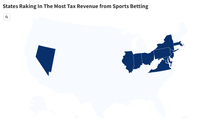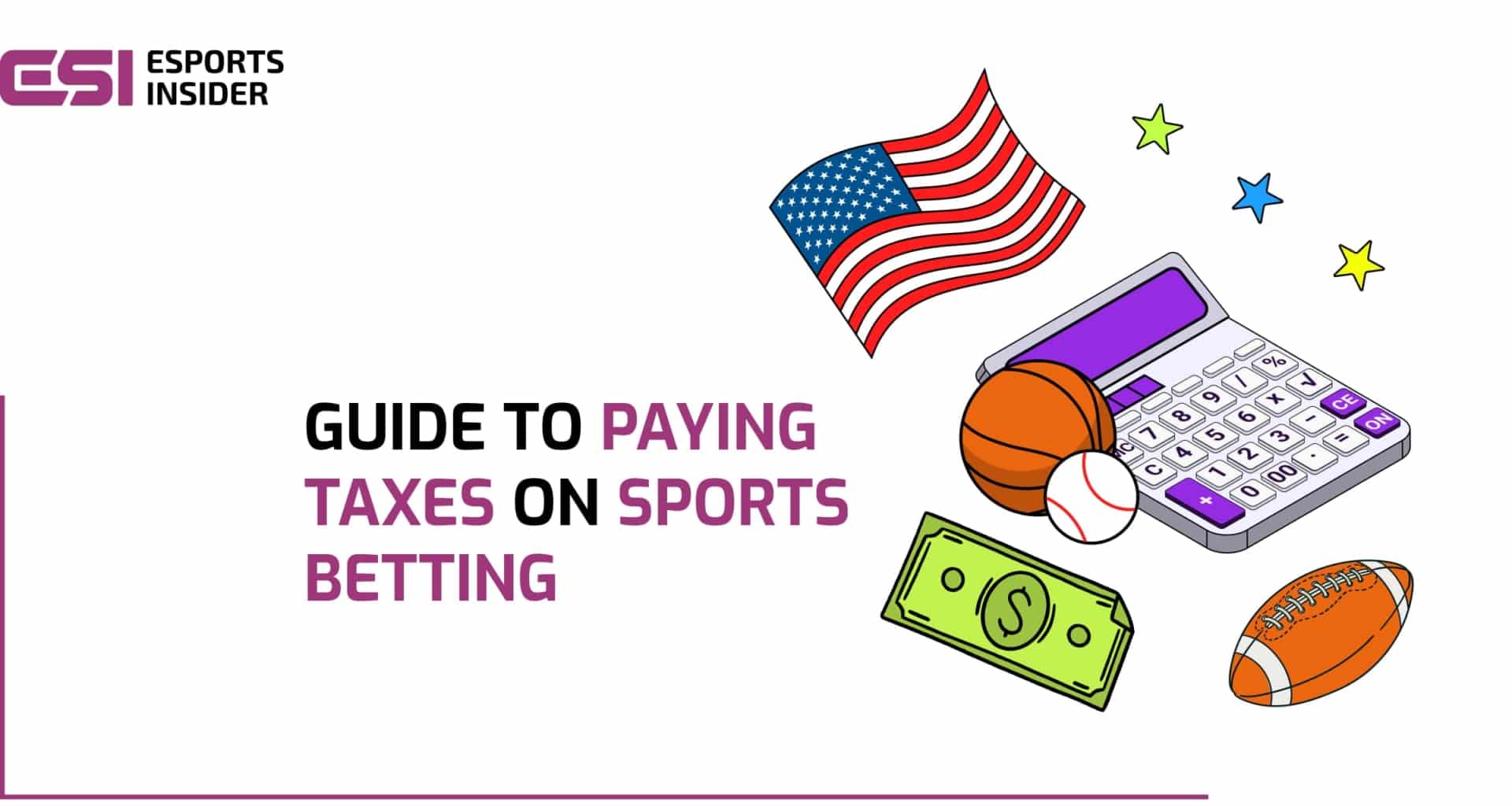Explore web search results related to this domain and discover relevant information.

Gambling winnings in Canada are generally exempt at the federal level because Paragraph 40(2)(f) of the Income Tax Act classifies casual betting income as non-taxable windfalls, providing clarity for recreational players. This exemption mechanism simplifies reporting obligations for most ...
Gambling winnings in Canada are generally exempt at the federal level because Paragraph 40(2)(f) of the Income Tax Act classifies casual betting income as non-taxable windfalls, providing clarity for recreational players. This exemption mechanism simplifies reporting obligations for most individuals and improves predictability of after-win finances.Interest generated from invested gambling proceeds constitutes investment income and enters taxable income under Section 12 of the Income Tax Act, requiring T5 slips and reporting. Investors improve long-term returns but must account for this interest as part of their annual income, bridging the gap between non-taxable windfalls and taxable earnings.Recreational players cannot deduct gambling losses because windfall exemptions apply only to gains, not to offset potential losses. This delineation supports simplified tax reporting for casual bettors while channeling expense deduction strategies toward professional operators.In Canada, recreational gamblers are generally exempt from paying taxes on their winnings, as per Paragraph 40(2)(f) of the Income Tax Act, which classifies casual betting income as non-taxable windfalls.
In general, early adopters of ... a flat tax rate on a sportsbook’s revenues, with rates ranging from 6.75 percent in Iowa and Nevada to 51 percent in New Hampshire, New York, and Rhode Island....
These totals do not include revenue from taxes on sports betting, which was mostly illegal outside of Nevada until a 2018 Supreme Court decision ended federal restrictions on this type of gambling. As of March 2023, 28 states and the District of Columbia offered legal sports betting and collected tax from the operators.According to the website Legal Sports Report, 27 states collected $1.5 billion in sports betting tax revenue in calendar year 2022, with collections ranging from less than $1 million in South Dakota and Wyoming to $144 million in Pennsylvania and $691 million in New York (the state with by far the most revenue collected).As of March 2023, state-sanctioned casino gambling, including commercial casinos and casino betting permitted at racetracks, riverboats, and other facilities, was available in 25 states. (That total does not include tribal casinos.) Before 1991, no commercial casinos existed outside of Nevada and New Jersey. Nevada is still home to more than 50 percent of all the commercial casinos in the United States, even though it now collects less tax revenue from casino gambling ($886 million) than Pennsylvania ($1.4 billion) and roughly as much as Maryland ($730 million).In general, early adopters of commercial casinos—particularly Nevada and New Jersey—have lower gambling tax rates than late-adopter states such as Maryland and Pennsylvania. For sports betting, most states levy a flat tax rate on a sportsbook’s revenues, with rates ranging from 6.75 percent in Iowa and Nevada to 51 percent in New Hampshire, New York, and Rhode Island.


Sports betting is legal in 38 states and Washington D.C., but the exact amount of tax revenue varies significantly state by state.
Sports betting is legal in 38 states and Washington, D.C., but the exact amount of tax revenue varies significantly.The full list of sports betting revenue (for states in which it's legal): ... New York claimed the highest amount of tax revenue from sports betting at $3.3 billion since June 2019.Some states like New Jersey have big revenues for sports bookers, but that didn't translate as well to tax revenue given lower rates." With the sports betting handle rising from $4.6 billion in 2018 to $149 billion in 2024, the amount of money gambled is likely to increase in the coming years, and states that enforce high taxes on those earnings will continue to benefit financially.Sports betting has allowed states to bring in an extra $9 billion in tax revenue since the U.S.

Parlays are considered a single bet for tax purposes and so would only have the 25-cent fee applied once, while multiple straight bets on the same slip would all be taxed individually, assuming they are all below $10.
Maryland is bet365’s fourth new U.S. state since March and its 15th overall. A 16th, Missouri, seems likely to follow. Illinois’ tax fee is 25 cents on the first 20 million wagers an online sportsbook takes in a fiscal year and 50 cents per bet beyond that threshold.Bet365’s historical performance in Illinois implies it will likely only be on the hook for the lower fee. While half of Illinois’ 10 authorized sportsbooks have passed the state tax charge onto customers in the form of a per-bet fee, the other five have instead responded with minimum bets of varying value.If it ends up being treated as taxable revenue, then there’s really no benefit to do that [per-wager fee] versus incorporating into the pricing.” ... In today’s competitive online gaming landscape, retaining players is not optional; it’s a defining factor in an operator's success and often the difference between...The Illinois Gaming Board (IGB) has not explicitly confirmed whether or not the state-imposed per-bet tax charge will itself be taxable for operators, and operators do not seem sure either.
You can only deduct losses when you itemize, and only up to the amount of gains. That $1,000 that you used was not lost, that's the bet you put down and you won the bet, which resulted in a $200 profit. Example; using the example you set, you have $200 of winnings to report as income on your ...
You only have $200 in winnings for the year and no losses if the above was your only wager or set of wagers at a casino or betting site or whatever. ... 1099-Gs are for payment from governments (tax refunds, unemployment.) Gambling winning are on a W-2G or a 1099-MISC.If you are playing $.75 a spin and win $1,200, you won $1,199, even if you lost $1000 on other machines/bets. More replies ... TurboTax is wrong. It has been long held by the IRS and the Tax Court that the "winnings" are the difference between the proceeds and the wager.Then add up all the money you lost on losing bets. That number goes onto your · Schedule A. ... It's correct, you gotta think how dumb people can be. They might try reporting $200 as their winnings but think $1,000 is a loss. Lol More replies More replies More replies ... I think people are confusing the rules here. You pay taxes on your profit for each winnings bet, so $200.You can only deduct losses when you itemize, and only up to the amount of gains. That $1,000 that you used was not lost, that's the bet you put down and you won the bet, which resulted in a $200 profit. Example; using the example you set, you have $200 of winnings to report as income on your tax return.


British racing is holding a one-day strike next week for the first time in its history in a tax dispute with the government.
Bookmaker Geoff Banks told AFP bookies on and off course have been suffering and big firms are itching to move off shore if the tax rise goes ahead ... British racing authorities hope their historic decision to strike will persuade the government to backtrack on its plans to raise online betting taxBritish racing is holding a one-day strike next week for the first time in its history in a tax dispute with the government. All four race meetings on September 10 are cancelled in protest at the government's proposal to raise online racing betting tax from 15% to the same level as casino and gaming at 21%.Gosden added: "If the tax goes up what will happen is it will encourage punters to bet where there is no protection whatsoever and is not regulated and the government get no tax returns.Banks believes the tax will be "catastrophic for racing and for regulated betting in the UK" as it is the bookies who contribute £380 million a year to the sport through taxes, media rights and sponsorship.

One tax deserves another, right? Well, sports bettors in Illinois wish that wasn't so. This week, Illinois sportsbooks began adding a surcharge on every wager following a tax instituted by state regulators. Sports bettors placing wagers in Illinois will now be charged between 25 and 50 cents ...
This week, Illinois sportsbooks began adding a surcharge on every wager following a tax instituted by state regulators. Sports bettors placing wagers in Illinois will now be charged between 25 and 50 cents on wagers due to a policy change in the state earlier this year.The per-bet surcharge directly ties to the volume of wagers handled by sportsbook operators. This move, which was effective July 1, 2025, wasn't actually collected until September 1. The new legislation imposes a 25-cent tax on each of the first 20 million sports wagers a licensed operator accepts annually.A volume-based surcharge is an attempt by the state to increase its revenue from the larger, more active legal sportsbooks in its market, say betting experts. Illinois is the first major sports betting market to try such a tax scheme.The primary driver behind these new tax measures is the pressure Illinois legislators feel to balance the state budget and generate additional public funds. How much could the new policy rake in? Some estimates say the per-bet tax alone will contribute an estimated $36 million in new annual revenue.

Illinois, Michigan, and Maine are all on pace to record milestones for the amount of sports betting tax revenue they’ve collected based on August reports. While Illinois will join the billion-dollar club with New York, Michigan will have brought in $100 million and Maine will be well over $10 mil
Tax revenue from sports betting in Illinois is surpassing $1 billion. Meanwhile, Michigan ($100 million) and Maine ($10 million) are hitting milestones.CHICAGO – The August sports betting revenue reports set to be released this month will mark major milestones for Illinois, Michigan, and Maine. For these states with legal sports betting, the tax revenue has become embedded in state finances.Pulling in $263.5 million in tax revenue in the first six months of 2025 alone, legal Illinois sportsbooks are on pace for a record-setting year. With the state starting an excise tax for each online bet placed, we can expect these numbers to increase rapidly moving forward.In 2025, the state has collected $16.7 million through July, with more growth expected as the NFL and college football betting season take off. The Detroit Lions are favored by 5.5 vs the Chicago Bears for Week 2. Much of the tax revenue collected from legal Michigan sportsbooks is earmarked for the School Aid Fund, making it a consistent boost for public education.

It is extremely urgent to provide greater funding for environmental agencies, such as Ibama and ICMBio, so that we can protect our forests, rivers, and ultimately, the well-being of all society.” Currently, sports betting and online gaming companies pay 12% of their GGR as a direct tax on ...
It is extremely urgent to provide greater funding for environmental agencies, such as Ibama and ICMBio, so that we can protect our forests, rivers, and ultimately, the well-being of all society.” Currently, sports betting and online gaming companies pay 12% of their GGR as a direct tax on operations, with an increase to 18% scheduled to take effect on October 1, following a Provisional Measure presented by the federal government.Federal Congressman Zé Vitor introduced Bill 4.371 in the Chamber of Deputies, which increases the betting tax to 22%. The congressman's goal is to allocate the funds to environmental protection and deforestation efforts. 'A greater financial contribution to agencies like Ibama and ICMBio is extremely urgent,' he says in his justification.Games Magazine, a mais famosa revista do setor de jogos, tornou-se um completo portal web com todas as informações sobre o mercado mais importante ainda por desenvolver: o Brasil. Tudo sobre cassino, bingo, slots, caça-níqueis, jogo do bicho, poker, póquer, apostas, online, eSports, turfe, loterias e notícias sobre a legalização do jogo no Brasil.
Low-rate taxes based on net gaming revenue make an effective tax design. Consumers legally wagered more than $100 billion on sporting contests in 2023, creating more than $1.8 billion in state revenue. Sports betting is now legal in 38 states and the District of Columbia, and the landscape ...
Legal sports betting in the U.S. hit an all-time high in 2023 at more than $100 billion wagered. States collected more than $1.8 billion in taxA tax is a mandatory payment or charge collected by local, state, and national governments from individuals or businesses to cover the costs of general government services, goods, and activities.Low-rate taxes based on net gaming revenue make an effective tax design. Consumers legally wagered more than $100 billion on sporting contests in 2023, creating more than $1.8 billion in state revenue. Sports betting is now legal in 38 states and the District of Columbia, and the landscape is rapidly evolving.Many states quickly responded by establishing their own marketplaces. Each year since 2018 has seen an increase in the number of states with legal sports betting markets. Beyond the court decision, tax policy was the key to the development of legal sports betting markets.Targeted taxes on sports wagering rely on the economic justification that gambling is addictive. Therefore, public funds can be used to improve the well-being of those who need help breaking their addiction. Sports betting taxes can be used to raise revenue to support those addicted players.


Roughly eight months after the ... (which could change if the government insists on overtaxing the activity). On the other, ‘Bets’ must overcome operational, corporate, tax, regulatory, and governance challenges....
Roughly eight months after the regularization of sports betting in Brazil, the companies holding licenses granted by the Secretariat of Prizes and Betting/Ministry of Finance are preparing for the next stage: market consolidation. On one hand, they still have the opportunity to develop profitable businesses (which could change if the government insists on overtaxing the activity). On the other, ‘Bets’ must overcome operational, corporate, tax, regulatory, and governance challenges.The licensing model adopted by the Brazilian government granted three brands (bet.br domains) to each licensed company/CNPJ, creating a parallel—and somewhat speculative—market for trading brands/“slots.” This is risky from the perspective of corporate governance, as well as corporate and tax law, since for now there is no provision for the formation of consortia or the effective segregation of the responsibilities of administrators and the operating results of each brand.The absence of a unified registry of players prohibited from betting, along with missing regulations for some provisions of the law, makes compliance more costly and slower for licensed ‘Bets’, giving irregular operators an advantage and reinforcing the stigma against gaming—even when responsibly managed. Finally, the implementation of tax compliance by licensed ‘Bets’ remains slow, due to several factors, including: -The collection of the 12% contribution on GGR[1] still requires clarification.Combined with other conventional taxes (IRPJ, CSLL, PIS, Cofins, ISS, IOF), supervisory fees, and the upcoming selective tax, this will erode profitability, discourage foreign and domestic investment, reduce job creation, shrink overall tax collection (especially on profits), and open more space for irregular ‘Bets’. -Many ‘Bets’ have foreign shareholders and investors who are still learning Brazil’s complex tax system and building their legal, tax, and accounting teams.
Individual tax filers must report total gambling income as “Other income: gambling” on line 8b of Schedule 1, 1040. The only exception is if you are filing as a professional gambler, meaning someone “engaged in sports betting primarily for profit rather than only as a hobby,” per the ...
This opened the floodgates for various state legislatures to decide whether to allow sports betting. Currently, 40 states and the District of Columbia authorize the practice, and 34 permit online sports betting, according to the American Gaming Association. This has tax implications for millions of gamblers — who are also taxpayers.There is no ambiguity here, according to tax experts. “Broadly, winnings from sports betting are taxable income,” said April Walker, senior manager for Tax Practice and Ethics with the American Institute of CPAs.While supplying the form is the responsibility of the payer, Walker noted, you are still liable for reporting and ensuring taxes are paid on those sports betting winnings, whether or not you receive the form.Individual tax filers must report total gambling income as “Other income: gambling” on line 8b of Schedule 1, 1040. The only exception is if you are filing as a professional gambler, meaning someone “engaged in sports betting primarily for profit rather than only as a hobby,” per the Journal of Financial Planning.

Gambling proceeds are considered income and federal income tax rates range from 10% to 37%. How much of your winnings you owe Uncle Sam depends on your tax bracket. Because gambling facilities are required to withhold a flat percentage of your winnings if they're large enough, there may be ...
Most states have legalized sports betting in one form or another, which means there are tax implications if you win a wager — whether it's the office football pool, a day at the races or a weekend in Las Vegas.Gambling proceeds are considered income and federal income tax rates range from 10% to 37%. How much of your winnings you owe Uncle Sam depends on your tax bracket. Because gambling facilities are required to withhold a flat percentage of your winnings if they're large enough, there may be a difference between the tax withheld and what you owe on your tax return.Simple Form 1040 returns only (no schedules except for the earned income tax credit, child tax credit and student loan interest). ... Live Assisted plan includes unlimited assistance and final review. Live Full Service includes a dedicated expert to complete and file your return. ... Subscribe to the CNBC Select Newsletter! Money matters — so make the most of it. Get expert tips, strategies, news and everything else you need to maximize your money, right to your inbox. Sign up here. Winning from sports bets are considered ordinary taxable income.State taxes on gambling winnings vary widely — some states, like Nevada, have no tax on gambling, while others tax gambling wins at a higher rate. Check your state's sports betting tax laws to ensure you're complying with its regulations.

Before moving into digital media, she worked behind the scenes in sports broadcasting, helping bring live events and major tournaments to the screens of countless sports fans. ... All gambling winnings are considered taxable income, regardless of whether the money comes from wagers placed through ...
She focuses on creating clear, engaging content that helps guide readers and bettors to make informed decisions. Before moving into digital media, she worked behind the scenes in sports broadcasting, helping bring live events and major tournaments to the screens of countless sports fans. ... All gambling winnings are considered taxable income, regardless of whether the money comes from wagers placed through online sports betting or a retail casino.Bettors whose winnings meet or exceed specific thresholds are required to fill out a W-2G form for the IRS. New Hampshire, New York, and Rhode Island apply the highest tax rate to gambling revenue at 51%The sports betting landscape has experienced tremendous growth in recent years, with online sportsbooks now available in 38 states plus Washington, D.C. Americans legally wagered an astounding $147.91 billion on sports in 2024, an increase of 23.6% from the previous year. As the industry continues to explode into the public consciousness, understanding the different implications associated with sports gambling taxes is imperative.This applies to not just sports betting, but also any cash winnings from casino games, bingo, horse racing, lotteries, and more. Even non-cash prizes like vehicles or vacations qualify. In these cases, taxpayers are required to claim the item’s fair market value — in other words, the price it would sell for under current market conditions — at the time it is received.


Discover the latest on Congresswoman Dina Titus’ efforts to reverse a Trump-era gambling tax rule with the FAIR Bet Act. Despite setbacks in the House Rules Committee, bipartisan support and industry backing keep the fight alive to restore full gambling loss deductions and address the impact ...
Discover the latest on Congresswoman Dina Titus’ efforts to reverse a Trump-era gambling tax rule with the FAIR Bet Act. Despite setbacks in the House Rules Committee, bipartisan support and industry backing keep the fight alive to restore full gambling loss deductions and address the impact on gamblers and state revenues.Congresswoman Dina Titus from Nevada has encountered a significant roadblock in her efforts to amend a controversial gambling tax regulation. Recently, the House Rules Committee opted not to advance her proposed legislation, the Fair Accounting for Income Realized from Betting Earnings Taxation (FAIR Bet) Act, as an amendment to the National Defense Authorization Act (NDAA).The FAIR Bet Act aims to reverse a change introduced during former President Donald Trump’s administration, which reduced the allowance for gambling loss deductions from 100% to 90%. Starting from the 2026 tax year, this adjustment means gamblers could be taxed even if their net gambling outcome is zero.For example, a person winning $50,000 but losing an equivalent amount would still face taxes as if they earned $5,000. Representing the Las Vegas district, Titus has strongly opposed this change, labeling the restoration of the full deduction as a straightforward correction. She has accused Republicans of blocking her amendment and remains determined to push for full reinstatement of the previous deduction rules. The House Rules Committee’s rejection of the FAIR Bet Act represents another hurdle for the legislation, which Titus initially introduced in July.
The proceeds from a successful sports bet are taxable income, just like your paycheck or investment gains.
Andy Rosen is a former NerdWallet writer who covered taxes, cryptocurrency investing and alternative assets. He has more than 15 years of experience as a reporter and editor covering business, government, law enforcement and the intersection between money and ideas.Sabrina Parys is an editor and content strategist on the taxes and investing team at NerdWallet, where she manages and writes content on personal income taxes. Her previous experience includes five years as a copy editor and associate editor in academic and educational publishing. She is based in Brooklyn, New York. ... As online sports betting rolls out in more states, people are encountering legalized gambling in new ways.Whether you're wagering on March Madness from your couch or flying to Las Vegas for a weekend at the tables, understanding the tax implications is key. Here are some considerations to keep in mind if you're lucky enough to be in the black. The IRS has clear-cut rules on gambling income that predate the recent explosion of the sports betting industry.Businesses are required to send you Form W-2G by Jan. 31 of the following year. So if you won big betting on the Super Bowl this year, you should receive a form no later than February 2026. » Questions on lottery taxes?

The following rules apply to casual gamblers who aren't in the trade or business of gambling. Gambling winnings are fully taxable and you must report the income on your tax return. Gambling income includes but isn't limited to winnings from lotteries, raffles, horse races, and casinos.
A payer is required to issue you a Form W-2G, Certain Gambling Winnings if you receive certain gambling winnings or have any gambling winnings subject to federal income tax withholding. You must report all gambling winnings on Form 1040 or Form 1040-SR (use Schedule 1 (Form 1040) PDF), including winnings that aren't reported on a Form W-2G PDF.If you're a nonresident alien of the United States for income tax purposes and you have to file a tax return for U.S. source gambling winnings, you must use Form 1040-NR, U.S. Nonresident Alien Income Tax Return along with Schedule 1 (Form 1040) PDF to report gambling winnings.When you have gambling winnings, you may be required to pay an estimated tax on that additional income.For information on withholding on gambling winnings, refer to Publication 505, Tax Withholding and Estimated Tax.
To complete your tax return, you’ll report your winnings as “gambling income” on Form 1040, Schedule 1. If you have losses, you’ll report them on Schedule A. Lumping all of your bets together (called netting transactions) is unfortunately not permitted.
If you’re new to sports betting, you may have questions about how this may affect your taxes. In fact, you may be wondering if you pay taxes on sports betting at all. Like most financial activity in life, you can expect taxes to be a part of it. Whether or not you need to pay taxes will depend on your situation.If you’ve lost money, you won’t owe any taxes, but you may be able to deduct your losses if you itemize your deductions on your return. Take note: You can’t deduct more than your winnings. Typically, the betting organization or platform will send you and the IRS Form W-2G when you win $600 or more.To complete your tax return, you’ll report your winnings as “gambling income” on Form 1040, Schedule 1. If you have losses, you’ll report them on Schedule A. Lumping all of your bets together (called netting transactions) is unfortunately not permitted.We’ll answer your top sports betting questions about tax in this post.


Chief Executive of the Betting and Gaming Council Grainne Hurst discusses the dangers of betting tax hikes in the Budget.
Because if Chancellor Rachel Reeves hikes duties in the Budget, the ripple effects won’t just be felt at racecourses. From football to darts and rugby league, from local betting shops to major UK employers, the reality is that any tax raid on the sector would undermine jobs, economic growth, and the support we provide to sports right across the country.Thousands of these are in betting shops and casinos that sustain high streets, offering careers and investment in local communities. Thousands more are in online betting and gaming, clustered in centres of excellence in places like Leeds and Stoke. But piling on more taxes risks undermining all of this.Hiking taxes does not automatically increase revenues; in fact, it can achieve the opposite. A study commissioned by the BGC found that 1.5m Brits already stake up to £4.3bn on the black market each year. That’s money lost to the Treasury and to sport. A strong, well-regulated betting industry means stable tax receipts, reliable investment, and continued support for Britain’s most-loved sports.Yes, the Chancellor needs to raise taxes, but not at the expense of killing growth – growth that is the key to boosting tax receipts. And when it comes to potential further betting tax hikes, there’s far more at stake than just horseracing or other sports.
The unique complexities of tax design for sports betting excise taxes make optimal tax design particularly challenging. Any reforms to the federal sports betting tax should ensure that both bettors and operators find legal markets more attractive than illicit markets.
The unique complexities of tax design for a federal sports betting tax make optimal tax design particularly challenging. Learn moreTo date, nearly 40 states have created legal sports betting markets, with nearly $150 billion in estimated wagers in 2024. States have implemented a variety of taxA tax is a mandatory payment or charge collected by local, state, and national governments from individuals or businesses to cover the costs of general government services, goods, and activities.Legal sports wagers are subject to a federal tax of 0.25 percent of the sports betting handle, a term meaning the total amount of wagers. When first introduced in 1951, the tax was 10 percent of all wagers with a primary goal of combatting organized crime and illegal gambling.While federal data from the IRS are unavailable, we were able to aggregate state reports to estimate federal tax collections. In 2019, 13 states had legalized federal sports betting, and estimated revenues from the 0.25 percent federal sports betting handle tax totaled $33 million.







